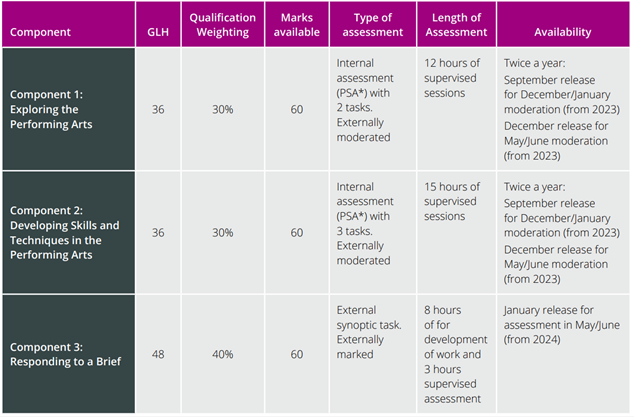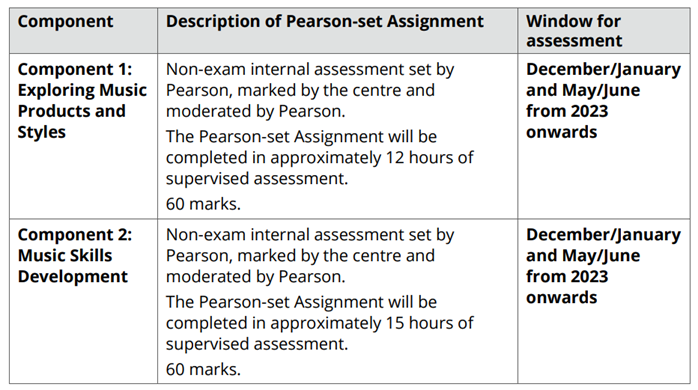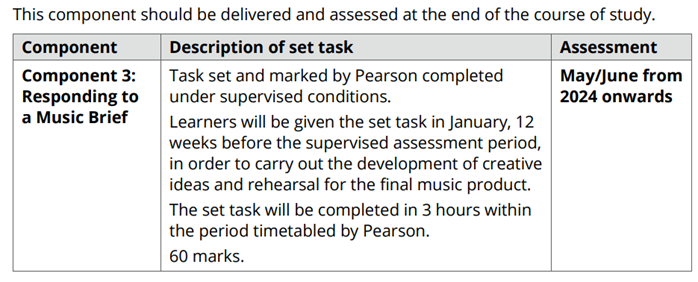- Home
- Curriculum
- Subject Information
- Performing Arts
Performing Arts
BackIntent
We believe that the performing arts can enable children to express themselves and develop their creativity. Studies have also shown that children who receive a performing arts education, are also able to benefit from an enhanced performance in other academic subjects like maths and english.
Our Performing Arts department comprises drama and music. At Oulton Academy these subjects aim to inspire young people to be creative, expressive and confident throughout drama and music. Students are encouraged to identify and demonstrate knowledge of how performing arts will develop their aesthetic appreciation of drama and music. Students are encouraged to develop performance skills alongside an understanding of cultural context.
Objectives
Our curriculum is organised in such a way that provides our students with the opportunity to learn expected behaviours and be successful in their learning.
We strive to create a curriculum which:
- Provides a diversity of powerful knowledge, which over time, cumulatively builds to provide the love of performance that enables students to continue appreciate and continue to perform after school.
- Enables all students to enjoy learning and experience success.
- Takes into account individual needs.
- Creates a culture of high expectation and aspiration to raise standards of attainment and progress.
- Develops confident and responsible individuals who can make a positive contribution to society and live safely and independently.
Implementation
From the outset the performing arts curriculum aims to make our intent a reality for all students. Our pupil entitlement extends beyond the ‘written’ curriculum and includes educational visits, extracurricular activities and curriculum enrichment experiences.
The curriculum is delivered by passionate and experienced teachers who are well resourced and who benefit from the latest CPD in terms of both subject specific materials as well as latest pedagogy Embedding Formative Assessment - SSAT (ssatuk.co.uk). All teachers have access to an appropriate professional body:
Embedding Formative Assessment - SSAT - More Information
Each component in the performing arts curriculum is designed to link coherently and cumulatively in a sequenced manner building on prior learning necessary to help learners develop long term knowledge and skills.
Year 7 and 8 students will be taught a variety of different styles/genres to develop their key foundational knowledge. Along with this, students will begin to gain an insight into some of the key terminology
Across each year group our performers build on their prior knowledge through iterative starters and stretch themselves independently during Gold zone which is a key part of all lessons and where our students are able to put the theory into practise.
Curriculum Implementation - Oulton Academy.
Key Stage 3:
At Key Stage 3, students will have opportunities to develop their social and team work skills, while also establishing some basic techniques and a toolkit of devices that they can use throughout the rest of the academic year across Music, Drama and the performing arts.
Key Stage 4:
At Key Stage 4, students study Btec Music Practice or Btec Performing Arts where they will learn about the performing arts industry as a whole and work on related practical activities that will enable them to become a better performer, both inside and outside of the classroom.
Review and evaluate
The performing arts department are themselves life long learners and so are reflective on all our practises, we are proactive in investigating best practise and sharing this learning and understanding across our network of schools.
Further Information
If you require more detailed information, please email the head of department Mrs Robinson-Marsh:
Drama Year 7
What will I be studying?
HT1&2: Silent Movie
- Understanding of silent movie / mime over the past 100 years.
- Intro to different actors and performances through Silent Movie:
HT3&4: Mr Holgado
- To form a character based on a story idea.
- To understand how to create a character analysis that portrays the character to be performed within the play.
- To understand how script is used to tell a story.
HT5&6: Oliver Twist
- To understand the skills required for Musical Theatre.
- Key elements required for a performance of Oliver Twist.
- Learn how to critically assess own and others work.
- To understand empathy and how it is integrated in to characterisation.
How will I be assessed?
Formal assessment takes place once per half term where students will perform to the rest of their class what they have been working on in lesson. Students will then be given teacher/peer assessed evaluation sheets aimed to help develop skills and deepen their understanding of the subject.
Which websites should I use to support my learning?
Drama Year 8
What will I be studying?
HT1&2: Crimewatch
- To understand what Docu drama is and how it is used in theatre and TV.
- Understanding of Crimewatch, what it involves and how it is performed.
- Understanding of key terminology:
Presenter, Victim, Narrator, Voice Over, Non-Fiction, Witness, Re-enactment, Freeze frame, Voice over, Flash back, Multi Role & NarratorMr Holgado
HT3&4: Theatre Practitioners
- Recall and summarise some key practitioners of the 20th and 21st Centuries in Theatre and their key ideologies.
- Understanding of a variety of styles and techniques required.
- Understand how to present short scenes using a range of naturalistic and abstract styles
- Analyse how movement could tell a story or develop a character.
- evaluate the impact of the styles and techniques on the actors and audience.
- Learn how to critically assess own and others work.
HT5&6: Exploring Theatre and Stage configuration through Script.
- Understanding and application of script and script conventions.
- Ability to summarise the role of a director.
- Interpret the script through a clear directors’ vision.
- Ability to demonstrate historical and theatrical period and genres
- Connect their understanding of practitioners to the presentation of the script through understanding of knowledge.
- Identify stage configurations: thrust/ traverse
- Understand how to select appropriate features of stylised drama.
Career Links
How will I be assessed?
Formal assessment takes place once per half term where students will perform to the rest of their class what they have been working on in lesson. Students will then be given teacher/peer assessed evaluation sheets aimed to help develop skills and deepen their understanding of the subject.
Which websites should I use to support my learning?
https://thedramateacher.com/documentary-drama-for-the-classroom/
KS4 - Performing Arts
BTEC Tech Award Level 1/2 in Performing Arts
What will I be studying?
This is a course that includes both practical and written elements.
Students will learn about the performing arts industry as a whole and work on related practical activities that will enable them to become a better performer, both inside and outside of the classroom.
Component 1 - Exploring the Performing Arts
- Students will develop their understanding of the performing arts by examining the work of performing arts professionals and the processes used to create performance.
Component 2 - Developing Skills and Techniques in Performing Arts
- Students will develop their performing arts skills and techniques through the reproduction of acting, dance and/or musical theatre repertoire as performers or designers.
Component 3 - Responding to a Brief
- Students will be given the opportunity to work as part of a group to contribute to a workshop performance as either a performer or a designer in response to a brief and stimulus.
Assessment is ongoing, and students will be given final assessment deadlines to work towards.
Career Links
- Actor
- Teacher
- Director
- Producer
- Lighting Designer
- Sound Engineer
How will I be assessed?

Which examination board am I following?
Pearson:
https://qualifications.pearson.com/en/qualifications/btec-tech-awards/performing-arts-2022.html
Which websites should I use to support my learning?
Course Specification:
Useful Guide to the Course
Helpful Keywords
Music Year 7
At Key Stage 3, students each have a weekly Music lesson as well as having further opportunities to develop their skills through extra-curricular activities and instrumental lessons. Based on Performance, Composition and Listening, lessons are predominantly practical and encourage students to work as musicians over a range of instruments and technology, preparing them for further study into Key Stage 4.
What will I be studying?
Autumn Term
- The Elements of Music
- Rhythm and Notation
- Performance Skills-The Keyboard
- Performance Skills-When the Saints Go Marching In
Spring Term
- Introduction to GarageBand
- Composition Skills-The Pentatonic Scale
- Performance Skills-Canon Ensemble
Summer Term
- Film/Incidental Music
- Composition Skills-Woman in Black
- Performance Skills-Film Themes
How will I be assessed?
Formal assessment takes place once per half term with students working towards an individual or ensemble performance. Over the year, students will be assessed on the areas of Performance, Composition and Listening and will show progress and development of their overall skills and knowledge. Students will be given verbal feedback every lesson and will also have regular opportunities for peer and self-assessment, developing metacognition and deepening their understanding of the subject.
Music Year 8
What will I be studying?
Autumn Term
- The Blues
- Performance Skills-12 Bar Blues, Improvisation, Syncopation
- Composition Skills-Blues Song
Spring Term
- Hip-Hop
- Performance Skills-Changes
- Composition Skills-Sampling, Rap
Summer Term
- Music and the Media
- Song Arrangement-'Boulevard of Broken Dreams'
- Musical Futures
How will I be assessed?
Formal assessment takes place once per half term with students working towards an individual or ensemble performance. Over the year, students will be assessed on the areas of Performance, Composition and Listening and will show progress and development of their overall skills and knowledge. Students will be given verbal feedback every lesson and will also have regular opportunities for peer and self-assessment, developing metacognition and deepening their understanding of the subject.
Music Year 9
What will I be studying?
Autumn Term
- Practical Skills in Music-Musical Futures
- Performance Skills-Eye of the Tiger
- Performance Skills-Rock 'n' Roll
Spring Term
- Performance Skills-Rock Around the Clock
- Reggae: Mento, Ska, Rock Steady
- Class Reggae Performance-My Boy Lollipop
Summer Term
- Practical Skills in Music
- Song Writing
- Garage Band recording
How will I be assessed?
Formal assessment takes place once per half term with students working towards an individual or ensemble performance. Over the year, students will be assessed on the areas of Performance, Composition and Listening and will show progress and development of their overall skills and knowledge. Students will be given verbal feedback every lesson and will also have regular opportunities for peer and self-assessment, developing metacognition and deepening their understanding of the subject.
KS4 - Music Practice
BTEC TECH AWARD IN MUSIC PRACTICE
Component 2 - Developing Skills and Techniques in Performing Arts
The Tech Award gives learners the opportunity to develop knowledge and skills through realistic vocational contexts. The main four areas of focus are:
- development of Performance and Composition skills that demonstrate student’s ability to respond to a musical brief
- processes that underpin effective ways of working in the music sector, such using skills and techniques for rehearsal, creation, production and performance
- general attitudes including organisation, personal management, and communication
- knowledge of musical skills and styles, studying musical techniques from different musical genres. The Tech Award gives learners the opportunity to apply knowledge and skills in a practical way through exploration and development of techniques and styles.
This is a course that includes both practical and written elements
Students will learn about the Music Industry as a whole and work on related practical activities that will enable them to become a better musician, both inside and outside of the classroom.
Component 1 - Exploring Music Products and Styles
Component 2 - Music Skills Development
Component 3 - Responding to a Music Brief
Assessment is ongoing, and students will be given final assessment deadlines to work towards.
- Career Links
- Live Musician
- Producer
- Music Teacher
- Production Manager
Study of the qualification as part of Key Stage 4 learning will help learners to make more informed choices for further learning, either generally or in this sector. This may include:
- A Levels as preparation for entry to higher education in a range of subjects
- BTEC National in Music (Level 3)
- BTEC National in Music Technology (Level 3)
- Degree Level courses
Career opportunities, specifically in Music, could include, professional performer/musician, composer, sound engineer, teaching, music production, runner, roadie, backline technical support, stage crew, venue staff, music promotion and music sales.
How will I be assessed?
The three components in the qualification give learners the opportunity to develop broad knowledge and understanding of the music sector, and specialist skills such as applying musical knowledge to music performance, music creation and music production at Levels 1 and 2.


Which examination board am I following?
Pearson
https://qualifications.pearson.com/en/qualifications/btec-tech-awards/music-practice-2022.html
Which websites should I use to support my learning?
Course Specification:
ttps://qualifications.pearson.com/en/qualifications/btec-tech-awards/music-practice-2022.html
